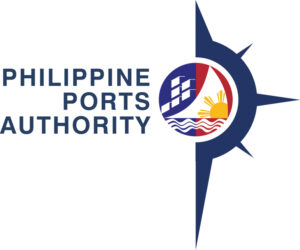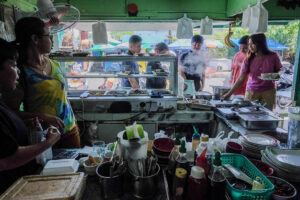PPA reviewing processes to stop importers from using ports for storage
THE PHILIPPINE Ports Authority (PPA) is seeking new policies to discourage importers and other port users from using ports as storage areas. “We are coordinating with the Bureau of Customs (BoC)… for importers not to delay the filing of their importation entry,” PPA General-Manager Jay Daniel R. Santiago said in a media release on Monday. […]

THE PHILIPPINE Ports Authority (PPA) is seeking new policies to discourage importers and other port users from using ports as storage areas.
“We are coordinating with the Bureau of Customs (BoC)… for importers not to delay the filing of their importation entry,” PPA General-Manager Jay Daniel R. Santiago said in a media release on Monday.
“We are slowly reviewing our processes in PPA and in coordination with BoC,” he added.
Mr. Santiago said the PPA is now coordinating with the BoC to streamline their processes to prevent ports from becoming storage areas.
This came after the PPA said hundreds of rice containers, chicken meat, pork, and onions have been unclaimed and overstaying at Manila port.
Mr. Santiago said ports under the PPA are designed to move cargoes and are not storage areas for users.
“Some importers delay the filing of the import entry since they can save on storage cost (at the ports) compared to if they store goods in private warehouses,” Mr. Santiago said.
“They pay only P700 a day (per container). For a month, that is P21,000 which is a small amount compared to the value of the shipment,” he added.
The PPA said that importers have a 30-day window to remove their cargo once it has been cleared by the BoC; otherwise, the goods will be considered condemned.
Mr. Santiago said that the PPA has provided the Department of Agriculture with a list of 20 consignees who did not retrieve over 500 twenty-foot equivalent units (TEUs) of rice and other agricultural products at the Manila ports by Sept. 30.
He added that in a letter dated Oct. 1, 2024, the PPA provided Agriculture Secretary Francisco Tiu Laurel with a list of consignees for unclaimed pork, chicken, and onion shipments at the ports, including those exceeding the 30-day dwell time.
He said the PPA’s mandate is limited to port management and does not extend to overseeing consignees.
The PPA said it has directed the head of operations and engineering of Asian Terminal, Inc., the operator of Manila South Harbor, to report overstaying containers to the BoC for appropriate action under Section 1129 of the Customs Modernization and Tariff Act.
“We believe having this information on a regular basis will help both PPA and DA identify trends, address any challenges promptly, and improve overall service delivery,” Mr. Santiago said.
The PPA said it has increased its monitoring of pork, chicken, and onion inventories in preparation for the Christmas season.
The agency said it also provided the Agriculture department with a detailed inventory of shipments at Manila ports as of Sept. 30, including 135 TEUs of pork, 101 TEUs of chicken, and 24 TEUs of onions.
The PPA likewise reported that 21 pork containers have stayed at the port for over 30 days, with five exceeding 1,000 days, despite BoC clearance.
For chicken, 22 containers cleared by the BoC are still at the port, with 12 exceeding 600 days. Four onion containers have not yet received OLRS (On-Line Release System) clearance, the agency said.
Separately, the PPA has issued an invitation to bidders for the expansion of the Port of Masbate for P162 million.
All interested parties can submit bids until Oct. 25, the port regulator said.
The contractor for the project must complete the expansion within 450 calendar days, PPA said, adding that bidders should have completed a similar contract to the Masbate Port expansion. — Ashley Erika O. Jose























